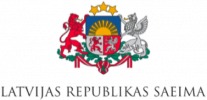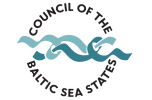42nd Session
Opening of the Session
On 23-24 November 2023 in Tallinn (Estonia), parliamentarians, governmental representatives and experts of the Baltic States met for the 42nd Session of the Baltic Assembly and the 29th Baltic Council to discuss current affairs and cooperation of the Baltic States in such areas as economy and civil defence.
On 24 November, the meeting of the Presidium of the Baltic Assembly and the speakers of the national parliaments of the Baltic States took place in Riigikogu, the Parliament of Estonia. Afterwards, the 42nd Session of the Baltic Assembly began. President of the Baltic Assembly Timo Suslov declared it open by stating that “the Baltic cooperation through unity, solidarity and support is key as we remember clearly that we have achieved some of our most important goals through cooperation". He emphasized that the Baltic States have stood shoulder to shoulder when aiming to join the EU and NATO, and their joint efforts have resulted in almost 20 years in the European and transatlantic community. Due to this experience, the Baltics have been very active in supporting Ukraine and other Eastern Partnership countries. "We believe that current global challenges can be solved in larger regional formats, and we are glad to see that over the years the Baltic Assembly has proven to be an excellent format for bringing together parliamentarians from different parts of the world. Today is a clear example of that.” Timo Suslov informed.
In the opening of the Session, President of the Riigikogu of Estonia Lauri Hussar stated that only together the Baltic States can amplify their messages to NATO allies, confirming the dedication to their national defence and continuous support to Ukraine. Speaker of the Seimas of Lithuania Viktorija Čmilytė-Nielsen highlighted the crucial role of parliamentary coordination to bolster Ukraine’s defences, hold Russia accountable, impose sanctions and express support for President Volodymyr Zelenskyy’s 10-point peace plan. Deputy Speaker of the Saeima of Latvia Antoņina Ņenaševa emphasized the need to continue to lobby together with the allies to ensure Russia’s accountability through an international tribunal. Additionally, she highlighted the need to foster Baltic identity through robust cultural cooperation, for example, by advancing language diversity in border region schools.
Baltic States joining forces towards a region that is more resilient to economic and energy market pressures
Head of the Energy Department of the Estonian Ministry of Climate Rein Vaks noted that together, the Baltic States are doing their best to desynchronize from Russia. This shows that while the Baltic States are small, they can remain strong in the energy field as long as they work together, look at the same goals and deal with the same issues. Head of the Strategy Department at the Estonian Ministry of Economic Affairs and Communications Joonas Pärenson added that there is a potential for the Baltic region to be very innovative - the Baltic countries could exchange practices and discuss how to do this best. An agile mindset and a long-term strategic approach are also key to achieving this goal.
Head of Public Policy Decisions and Data Analytics at the Ministry of Economy and Innovation of Lithuania Titas Budreika informed that the further actions that are needed for a long-term response to the energy crisis include a further diversification of energy supply sources and routes, accelerating the deployment of renewables, further improving energy efficiency, as well as interconnections of gas electricity networks. The Baltic States have a tremendous potential to develop future export commodity products like electricity, hydrogen and other higher-value net-zero energy products.
Head of Analytical Service of the Ministry of Economics of Latvia Dace Zīle added that despite all the current challenges, the Baltic States are strong and resilient countries. In the future, there is a need to enhance closer cooperation to strengthen the regional attractiveness and a stronger push for the Rail Baltica progress. Cooperation and exchange of good practices in the fields of defence and green transition should move forward as well.
Chair of the Economics, Energy and Innovation Committee of the Baltic Assembly Priit Lomp concluded that despite the economic challenges and hardships, the Baltic States have to remain strong and unified in their support for Ukraine - maintaining this support is critical to improving not only security but also the economic and financial situation in the Baltics and the whole of Europe.
Effective and coherent regional civil defence through close consultations and coordination
Director-General of the Estonian Rescue Board Margo Klaos informed that civil protection mechanisms should be ready for wartime as well. Cooperation between the Baltic States in the field is taking place in the organisation of mass evacuation – this includes the exchange of positions between the border regions of the Baltic States. All three countries need political commitment to guarantee permanent funding of the civil protection systems.
Director of the Fire and Rescue Department under the Ministry of the Interior of Lithuania Saulius Greičius added that the cooperation of the Baltic rescue services has been a long-term one – the heads meet at least once a year. An agreement was signed between the Baltic States, Poland and Ukraine to provide practical support for Ukraine, which also includes the necessary integration of the civil protection systems. The heads of the Baltic States have also initiated discussions regarding civil defence mechanisms across the EU among several priority areas, such as mass evacuation. The Baltics have also proposed reviewing the existing legal regulation concerning civil defence.
Deputy Chief of the State Fire and Rescue Service under the Ministry of the Interior of Latvia Ivars Nakurts emphasized how important it is to coordinate the actions of the Baltic States as many issues have to be addressed on a regional level. The topics that are important for the Baltics include evacuation measures and providing basic population needs, as well as the availability of critical services.
Chair of the Security and Defence Committee of the Baltic Assembly Peeter Tali concluded that defence should go beyond the conventional military realm and include the whole of society. This approach to regional security among other things highlights the vital role of civil defence.
Lithuania’s Presidency plans for 2024
The participants of the Session were later introduced to the programme for Lithuania’s Presidency of the Baltic Assembly for 2024. The motto of the Lithuanian Presidency in the Baltic Assembly will be “Growing strong and resilient together”. The Estonian Presidency will focus on three priorities: 1) the Baltic region confident in its security, development, and resilience; 2) Connected, innovative and sustainable Baltic States; and 3) Unity, support, and consistency in facing regional challenges. Vice President of the Baltic Assembly Andrius Kupčinskas stated: "Lithuania is taking over the Presidency at a time when Europe continues to face a horrific war in Ukraine, as well as other challenges posed by the aggressors in the east of the Baltic States. Therefore, a united Baltic region that is confident in its security, development and resilience is the leading principle of the Lithuanian Presidency."
29th Baltic Council
Alongside the Session, the 29th Baltic Council, a cooperation platform for parliaments and governments, was held. Members of the Baltic Assembly jointly with representatives of the Baltic Council of Ministers evaluated the implementation of the joint priorities of 2023 and defined new objectives for cooperation for 2024. President of the Baltic Assembly Timo Suslov informed the participants about the close partnership between the Baltic Assembly and the Baltic Council. He also stated that there is noticeable progress in the cooperation of the Baltic States, especially in defence, digital matters, and energy connectivity as nearly 40% of recommendations of the Baltic Assembly to the governments have been implemented, however, challenges persist.
Chair of the Cooperation Council of the Baltic Council of Ministers and Minister of Foreign Affairs of Estonia Margus Tsahkna emphasised the importance of November 25 as it is the International Day for the Elimination of Violence Against Women and violence against women remains one of the most prevalent and pervasive human rights violations in the world. He emphasised the significant value that the Baltic Council holds for their collaboration with the Baltic Assembly, especially in light of the transformed security situation following Russia’s full-scale aggression in Ukraine. He added that there is a need for continued joint efforts from the Baltic States to hold Russia accountable.
Documents adopted during the Session
- Final Document (download)
- Resolution (download)
- Joint Statement of the 29th Baltic Council (download)
- Decision on the Leadership of the Presidium and the Committees (download)
Photos of the Session
© Photos by the Riigikogu, Seimas and Saeima
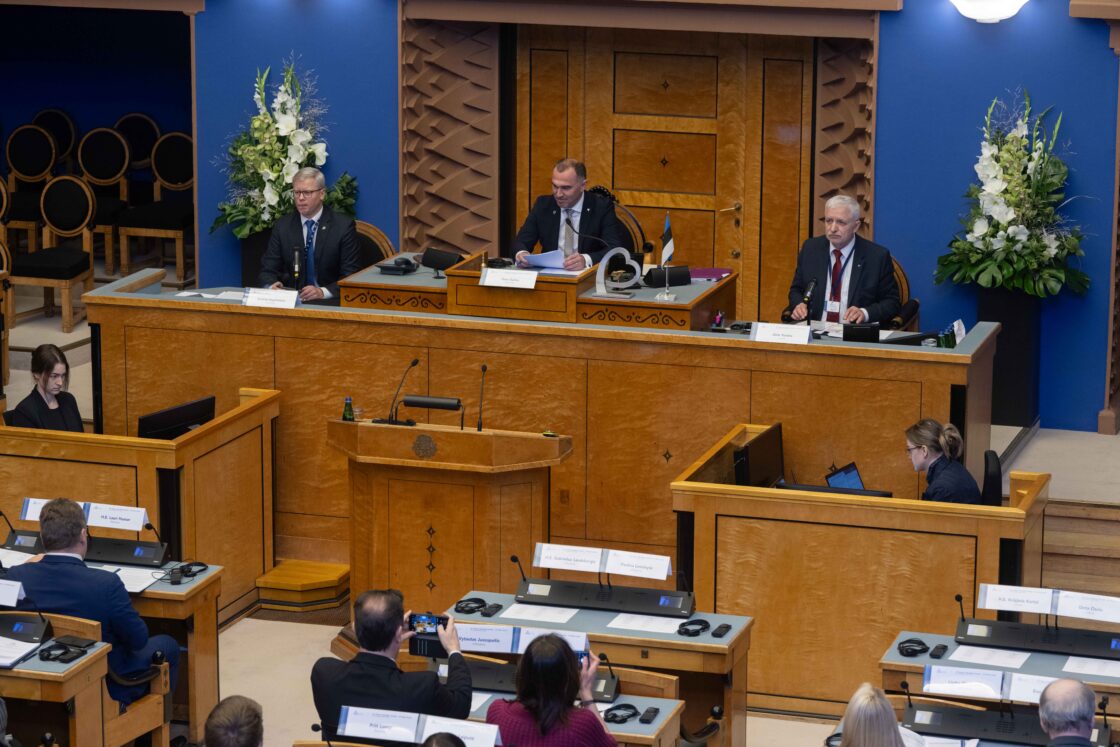 President Timo Suslov, Vice Presidents Andrius Kupčinskas and Jānis Vucāns
President Timo Suslov, Vice Presidents Andrius Kupčinskas and Jānis Vucāns
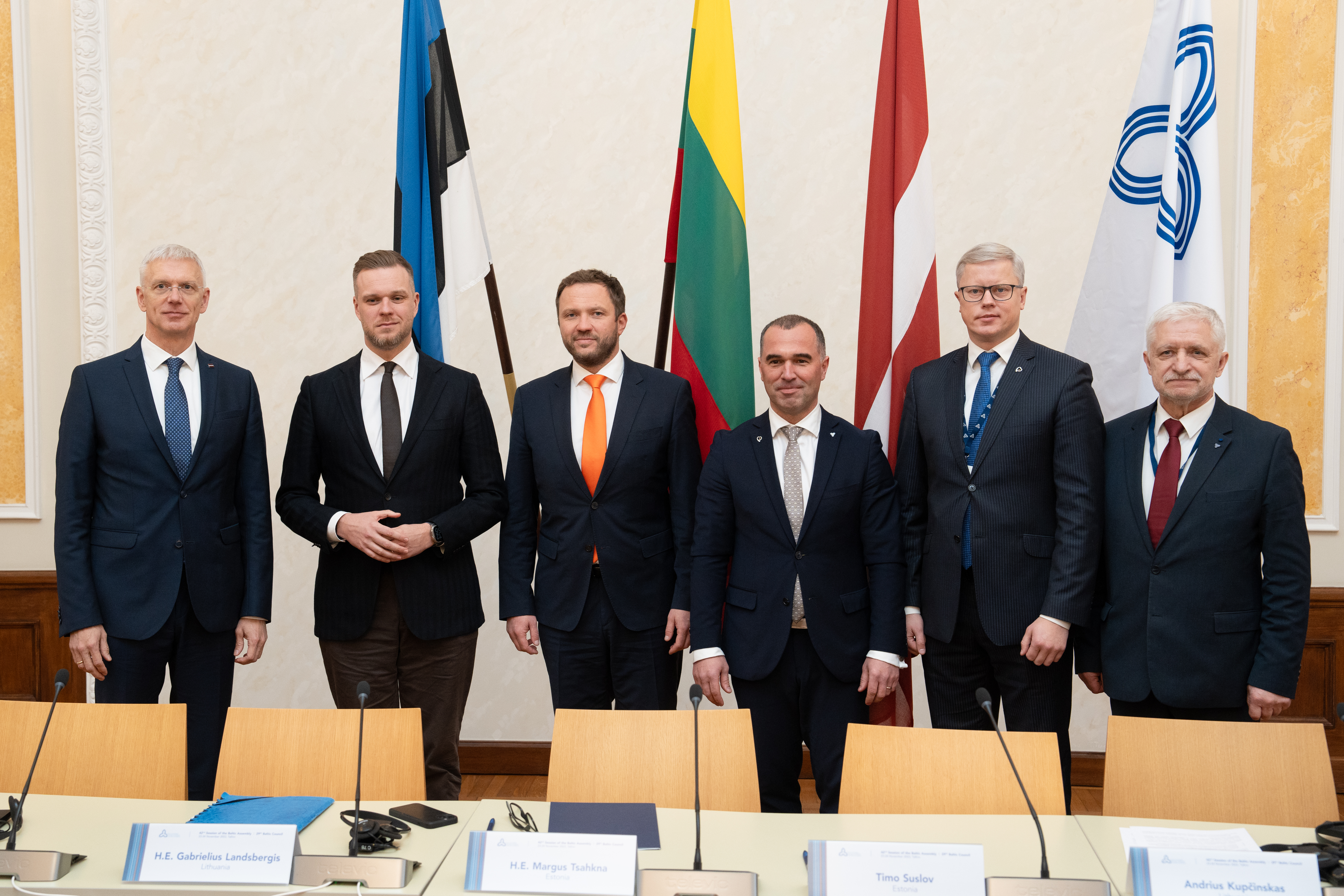 President Timo Suslov, Vice Presidents Andrius Kupčinskas and Jānis Vucāns together with the Chair of the Cooperation Council of the Baltic Council of Ministers and Minister of Foreign Affairs of Estonia Margus Tsahkna, Minister of Foreign Affairs of the Republic of Lithuania Gabrielius Landsbergis and Minister of Foreign Affairs of the Republic of Latvia Krišjānis Kariņš after signing the Joint Statement
President Timo Suslov, Vice Presidents Andrius Kupčinskas and Jānis Vucāns together with the Chair of the Cooperation Council of the Baltic Council of Ministers and Minister of Foreign Affairs of Estonia Margus Tsahkna, Minister of Foreign Affairs of the Republic of Lithuania Gabrielius Landsbergis and Minister of Foreign Affairs of the Republic of Latvia Krišjānis Kariņš after signing the Joint Statement
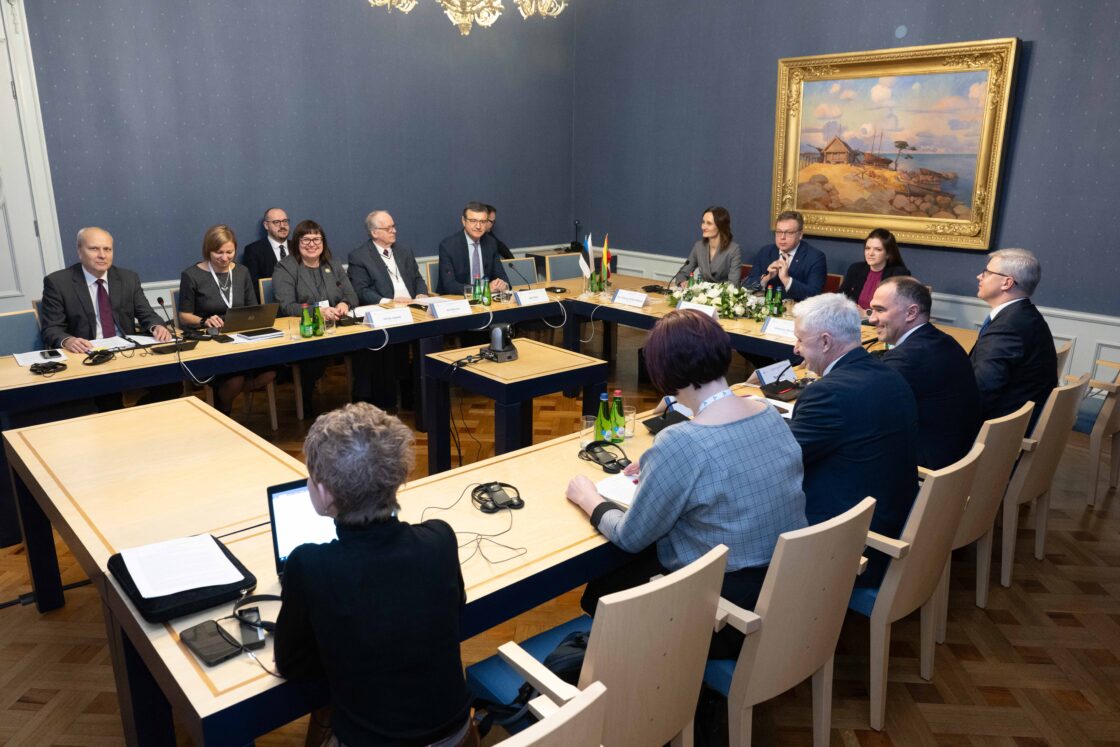 Members of the Presidium of the Baltic Assembly and the Leaders of the Parliaments of the Baltic States during the internal meeting
Members of the Presidium of the Baltic Assembly and the Leaders of the Parliaments of the Baltic States during the internal meeting
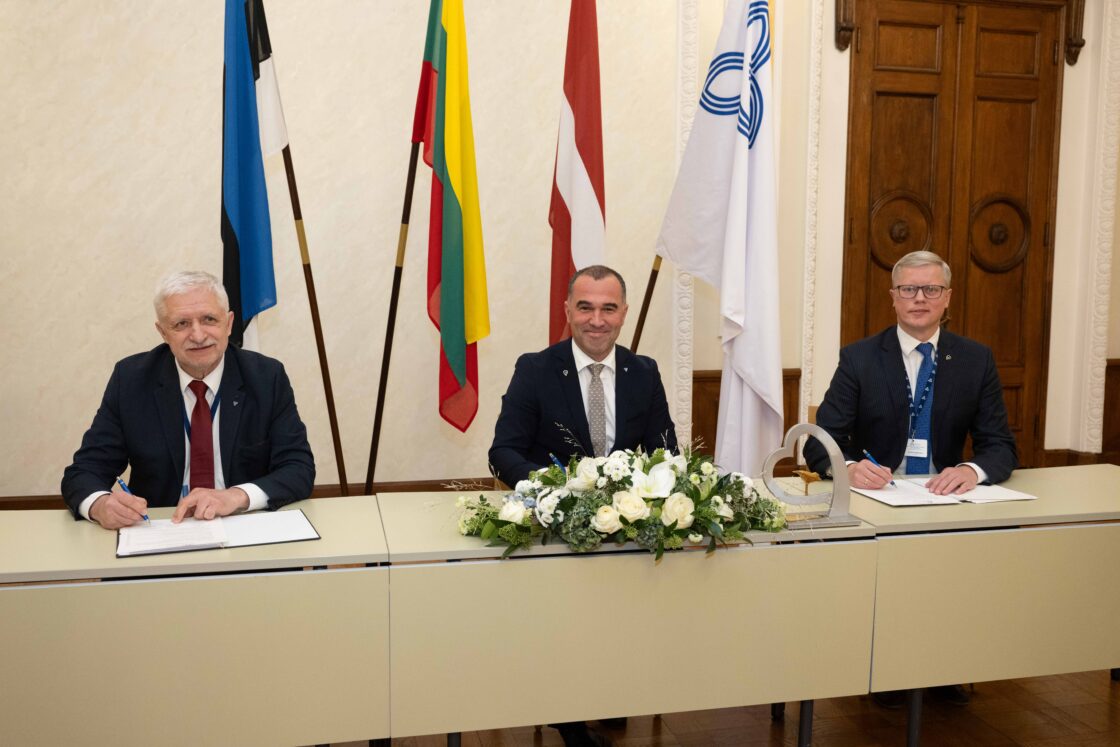 President Timo Suslov and Vice Presidents Andrius Kupčinskas and Jānis Vucāns signing the Final Document
President Timo Suslov and Vice Presidents Andrius Kupčinskas and Jānis Vucāns signing the Final Document
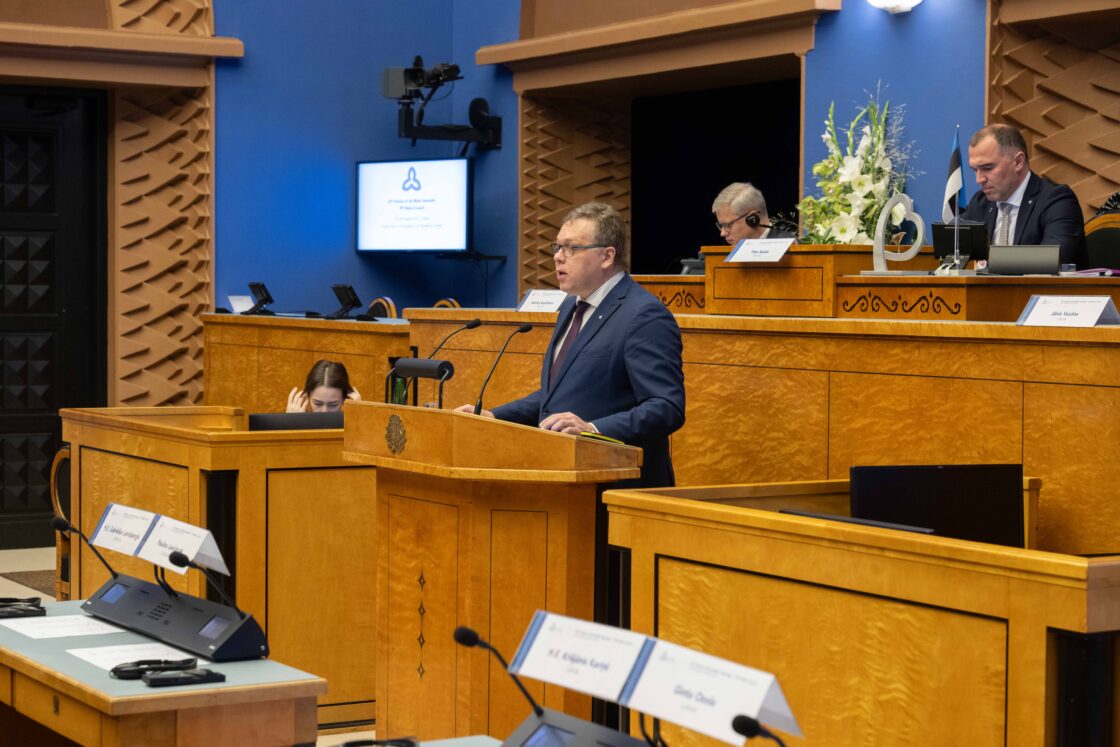 President of the Riigikogu Lauri Hussar opening the Session
President of the Riigikogu Lauri Hussar opening the Session
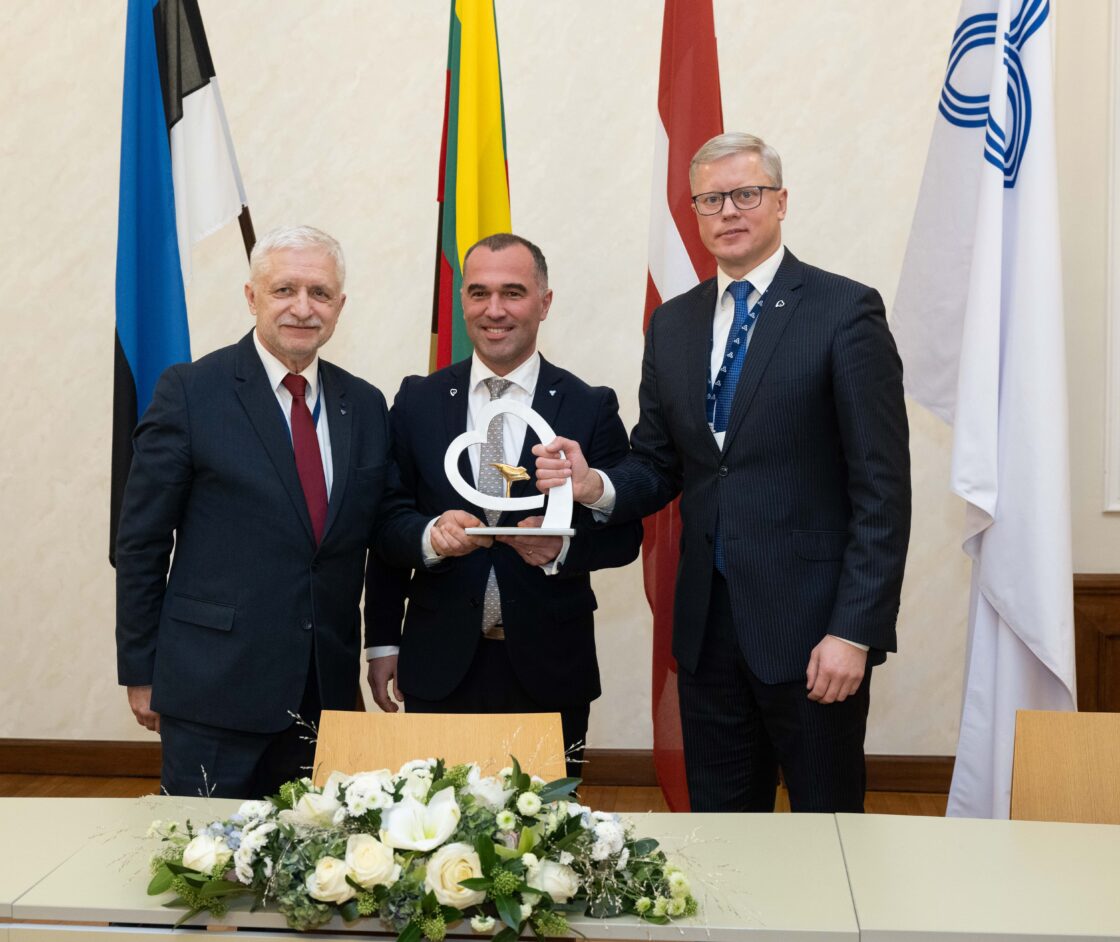 President Timo Suslov handing over the Presidency Statuette
President Timo Suslov handing over the Presidency Statuette

